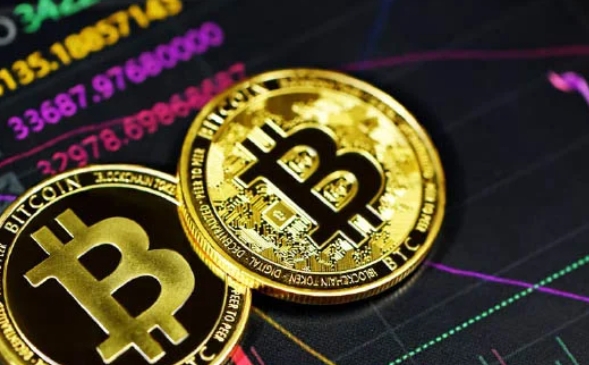Business
Why Nigeria May Not Adopt Bitcoin As Legal Tender
Published
2 years agoon
By
Editor
In April 2022, the Central African Republic became the first African country to adopt Bitcoin as a legal tender.
The nation’s parliament recognised Bitcoin and other forms of cryptocurrency as national tender, becoming the second country in the world to officially legalise crypto as legal tender.
In September 2021, El Salvador became the first country in the world to legalise cryptocurrency as a form of payment, allowing consumers to use crypto in all transactions. Since BTC was founded in 2009, ushering in a wave of different other cryptocurrencies, it has garnered good and bad attention from around the world.
Yet, its adoption, either legally or illegally, has continued to soar, forcing global businesses to begin to consider it as a form of payment. Recently, Emirates airline joined a growing list of companies to accept BTC as form of payment.
A report by the World Economic Forum disclosed that there were 18,142 cryptocurrencies, 460 crypto-exchanges, with a market cap of about $1.7tn. According to it, $91bn worth of cryptos were traded every 24 hours.
In Nigeria, crypto is illegal because of a February 2021 Central Bank of Nigeria ban on it. Regardless, Nigerians have continued to adopt it in transactions.
A Chainalysis report in 2021 revealed that the crypto market in Nigeria and other African countries grew by 1200 per cent in one year. It added that Africa had the third-fastest growing crypto economy in the world.
READ ALSO: CBN Issues Guidelines On Bank Neutral Cash Hubs
Another report by Chainalysis noted that Nigeria was the sixth leading country in the world in terms of crypto adoption despite the CBN’s ban on it.
In 2021, Nigerians traded at least N316.9bn worth of Bitcoin, with over six million crypto transactions and 16,000 transactions per day on Paxful. The peer-to-peer platform revealed that Nigeria was the number one nation on its platform.
However, experts believe that nations have to be cautious regarding the adoption of BTC and other forms of crypto as legal tender. They stated that BTC wasn’t designed to become a legal tender.
According to them, Nigeria might someday consider BTC as a form of payment, but it would never replace the Naira. They added that using it as Naira would contravene the constitutional purview of the CBN.
They further stated that the nations that had accepted or thinking of accepting crypto as a form of payment were those on the brink of economic collapse and Nigeria wasn’t necessarily one.
The Founder and Coordinator, Blockchain Nigeria User Group, Chimezie Chuta, said, “This will be contrary to the constitutional provision of Nigeria’s laws. Because explicitly, the CBN is the only institution empowered to issue a legal tender for the country.
“And currently, it is the Naira that has been issued, so for you to have an alternative unregulated currency to become a legal tender has to be legitimised by altering the constitution. That is something I do not see happening in a long time in Nigeria.
“Bitcoin can be recognised as a currency of payment but not a legal tender. Although it might become possible for you to use BTC to make transactions that are valid in the eyes of the law, but this is not something I see happening anytime soon because it is very clear that the central bank does not want the infiltration of unregulated kinds of payment instrument in Nigeria.”
According to him, BTC was perceived more as a commodity than an instrument of payment presently, and making it a legalised form of payment would be an encroachment on the purview of the CBN.
Chuta added, “Most countries that are adopting BTC are those that have hit the bottom like Venezuela and El Salvador.
“El Salvador didn’t even have a national currency; they were using the dollar. They could bring in BTC because they didn’t have a national currency. And in the other country, their economy was so bad that they had to allow BTC to become a national currency. Nigeria does not want to go in that route because they do not see themselves in that category yet.
“From a private perspective, one would have thought that what the CBN could have done is not necessarily legalise BTC but have reserve assets in BTC as a form of security against the continuous depreciation of the Naira. BTC has shown that it has a 200 per cent annual return since it has been in existence for a decade.
“If you compare this with the percentage value of the Naira, you would discover that it would have made some sense if some of our reserve assets are kept in a futuristic asset like BTC. That is the area I will support, but I do not think I will want Nigeria to turn BTC into a legal tender.”
The President of Stakeholders in Blockchain Technology Association of Nigeria and General Secretary of Blockchain Industry Coordinating Committee of Nigeria, Senator Ihenyen, said he was shocked when CAR announced the adoption of BTC as a legal tender.
According to him, BTC was not the solution to economic problems faced by countries and BTC wasn’t designed to replace national legal tenders.
He said, “CAR’s adoption of bitcoin as a legal tender came as a big surprise to me. Though I understand that decentralised currencies or cryptocurrencies will increasingly have a role to play in finance and payments, adopting bitcoin as a legal tender, in my opinion, is not really going to be the answer to the economic problems faced by CAR.
“Not even Satoshi Nakamoto, BTC’s inventor, expects that its electronic cash system would be adopted as the legal tender of any nation, including El Salvador. Nigeria is no exception. The primary idea of BTC is not to replace legal tenders such as the CFA, the dollar, or the Naira. Rather, it is to essentially enable peer-to-peer transactions in any network or ecosystem that wishes to adopt it as a means of exchange.
“In other words, BTC can operate side by side with legal tenders such as a central bank or reserve bank currencies, as well as central bank digital currencies such as the eNaira. Besides, considering the huge BTC adoption in Africa, including Nigeria, the more you attempt to stifle it or resist it, the bigger it becomes.
READ ALSO: Naira Loses By 0.12% At Trading
“This is because BTC and other similar cryptocurrencies thrive in a decentralised space where there is no central authority. So, regulators must see these crypto innovations as complimentary, thus proper regulations should be put in place to address the unique risks they may bring. That’s what regulation is all about.”
According to him, the decentralised nature of cryptocurrencies, including BCT, should make Nigeria consider exploring them for economic growth and global competitiveness since adoption had grown and would only continue to grow.
Ihenyen said that while the adoption of BTC wasn’t a possibility, Nigeria should be considering how its innovators, policymakers, and regulators could work together to ensure that the nation benefitted from the opportunities the crypto economy provides.
He stated that the Securities Exchange Commission had taken the first step to recognise digital assets in Nigeria.
He added that there was a need for a safe and sound financial system, and crypto had the tendency to distort monetary policies.
He said, “The need for a safe and sound financial system cannot be overemphasised. I believe this is why the Governor of the CBN, Godwin Emefiele, has been harping on the need for Nigeria to adopt an extremely cautious approach to BTC or cryptocurrency adoption in the country.
“As responsible leaders and players in Nigeria’s emerging blockchain industry and virtual assets sector, we understand these concerns. Cryptocurrency, if not given the attention it deserves, may be easily used in manners that distort monetary policy as well as expose the banking and financial system to money-laundering and terrorism-financing risks.
“But the question is, how Nigeria should approach these risks. Is it by banning or restricting cryptocurrencies in the country’s banking and financial system (as the CBN has done since February 2021) or is it by recognising cryptocurrency as a financial technology innovation that should be regulated? I think the answer is the latter.”
According to Ihenyen, there was a need for the nation to adopt a risk-based approach as it would allow it effectively to address the major concerns of regulators.
He stated that when cryptocurrencies and other virtual assets were properly classified, some would fall under assets such as securities, utilities and derivatives while others would fall under money which could be used as a medium of exchange, store of value, or unit of account.
The decision of whether to accept a currency falls within the purview of the CBN. Attempts to reach the spokesperson of the CBN, Mr Osita Nwanisobi, were not fruitful. When he answered his call, he said he would not comment on cryptocurrency but asked our correspondent to send a text message.
He was yet to respond to the text at the time of filing this report.
Recently the Securities and Exchange Commission classified crypto as digital assets and released guidelines in a hope-offering attempt. The CBN is yet to respond to SEC’s recent move, and its official position still classifies crypto as illegal.
According to the International Monetary Fund, there will be numerous risks and adverse effects if crypto-assets ever became national currencies. It stated their value was volatile and unrelated to the real economy.
READ ALSO: CBN Reviews Operations Of NIBBS Instant Payments System, Others
It added that countries with stable inflation, exchange rates and credible institutions were highly unlikely to adopt crypto as legal tender.
It said crypto would create macroeconomic instability, reductions in government revenues, and weak monetary policy if nations adopted it as their national currencies.
In a report titled, ‘Crypto assets as national currency? A step too far’, the IMF said, “As national currency, crypto assets – including bitcoin – come with substantial risks to macro-financial stability, financial integrity, consumer protection, and the environment.”
In another report, the IMF added that crypto currencies’ high volatility and valuation and increasing co-movement with equity markets would soon pose risks to financial stability in countries with widespread crypto adoption.
It is obvious that crypto has changed the financial landscape of the world, and different countries are floating or entertaining the idea of digital currencies as a response. Recently, the IMF advocated for a global regulatory crypto approach.
Much about crypto is still yet to be known, hence the caution from regulators. But its massive adoption in various countries is proof of its value to consumers. As more is known about crypto, it is expected that regulators will find a way to allow it to thrive in their financial systems.
As the experts have said, crypto won’t replace national currencies, but the financial system must find a place for it.
PUNCH
You may like


Naira Abuse: EFCC To Arraign Cubana Chief Priest Wednesday


Naira Abuse: ‘Ask Bob For Update’ – EFCC Issues Threat To Culprits


Naira Appreciation Continues Despite Drop In FX Turnover


Naira Appreciates By N340 Against USD In Four Weeks


Presidency Cautions Speculators As Naira Maintains Steady Appreciation


Naira Continues Appreciation Against USD At Forex Market
Business
CBN Gives New Directive On Lending In Real Estate
Published
3 days agoon
April 17, 2024By
Editor
The Central Bank of Nigeria, CBN, has released a new regulatory directive to enhance lending to the real sector of the Nigerian economy.
The directive, issued on April 17, 2024, with reference number BSD/DIR/PUB/LAB/017/005 and signed by the Acting Director of Banking Supervision, Adetona Adedeji, signifies a notable shift in the bank’s policy towards a more contractionary approach.
In line with the new measures, the CBN has reduced the loan-to-deposit ratio by 15 percentage points, down to 50 per cent.
This move aligns with the CBN’s current monetary tightening policies and reflects the increase in the Cash Reserve ratio rate for banks.
READ ALSO: JUST IN: CBN Gov Sacks Eight Directors, 32 Others
The LDR is a metric used to evaluate a bank’s liquidity by comparing its total loans to its total deposits over the same period, expressed as a percentage.
An excessively high ratio may indicate insufficient liquidity to meet unexpected fund requirements.
All Deposit Money Banks are now mandated to adhere to this revised LDR.
The CBN has stated that average daily figures will be utilised to gauge compliance with this directive.
Furthermore, while DMBs are encouraged to maintain robust risk management practices in their lending activities, the CBN has committed to continuous monitoring of adherence and will adjust the LDR as necessary based on market developments.
READ ALSO: JUST IN: CBN Increases Interest Rate To 24.75%
Adedeji has called on all banks to acknowledge these modifications and adjust their operations accordingly. He emphasised that this regulatory adjustment is anticipated to significantly influence the banking sector and the wider Nigerian economy.
The circular read in part, “Following a shift in the Bank’s policy stance towards a more contractionary approach, it is crucial to revise the loan-to-deposit ratio policy to conform with the CBN’s ongoing monetary tightening.
“Consequently, the CBN has decided to decrease the LDR by 15 percentage points to 50 per cent, proportionate to the rise in the CRR rate for banks.
“All DMBs must maintain this level, and it is advised that average daily figures will still be applied for compliance assessment.
“While DMBs are urged to sustain strong risk management practices concerning their lending operations, the CBN will persist in monitoring compliance, reviewing market developments, and making necessary adjustments to the LDR. Please be guided accordingly.”

The Dangote Petroleum Refinery has announced a reduction in the price of Automotive Gas Oil, popularly called diesel, from N1,200/litre to N1,000/litre.
It announced this in a statement issued on Tuesday by its spokesperson, Nduka Chiejina.
The statement read in part, “In an unprecedented move, Dangote Petroleum Refinery has announced a further reduction of the price of diesel from N1,200 to N1,000/litre.
READ ALSO: NNPP Faction Suspends Kano Governor For Six Months
“While rolling out the products, the refinery supplied at a substantially reduced price of N1,200/litre three weeks ago, representing over 30 per cent reduction from the previous market price of about N1,600/litre.
“This significant reduction in the price of diesel at Dangote Petroleum Refinery is expected to positively affect all the spheres of the economy and ultimately reduce the high inflation rate in the country.”
According to The PUNCH report, last week, oil marketers called on the refinery to reduce its diesel price, as they urged managers of the facility to sell at N850/litre.
Details later…
Business
Nigeria’s Oil Production Drops Again, Now 1.23mbpd – OPEC
Published
1 week agoon
April 12, 2024By
Editor
Nigeria’s crude oil production witnessed the second consecutive monthly decline since the beginning of this year, as it dropped to 1.231 million barrels per day in March, the Organisation of Petroleum Exporting Countries stated on Thursday.
OPEC disclosed this in its latest Monthly Oil Market Report for April 2024, stating that crude oil production details which it got through direct communication from Nigeria showed that the country pumped less oil in March when compared to what was produced in February.
Data from the report indicated that Nigeria produced 1.322 million barrels per day of crude in February this year, but this dropped to 1.231mbpd in March, representing a plunge of 91mbpd.
The report further stated that the country had produced 1.427mbpd of crude in January, but this was not sustained in February as it dropped in that month, while the southward oil production continued in March.
OPEC data, however, showed that the country’s average crude oil production in the first quarter of 2024 was 1.327mbpd, higher than the 1.313mbpd average oil production in the fourth quarter of 2023.
Nigeria’s first quarter oil output in 2024 was also higher than the 1.201mbpd average production in the third quarter of last year.
READ ALSO: Oil Production Rises 26.57m Bpd In February — OPEC
Oil theft and pipeline vandalism have dealt severe blows on Nigeria’s oil production, limiting the country’s output and making it fall below the volume approved for Nigeria by OPEC.
The PUNCH reported on Wednesday that the Nigerian National Petroleum Company Limited recorded 155 oil theft incidents in one week.
The report that stated the company revealed that during the review period, 53 illegal pipeline connections and 36 illegal refineries were uncovered in the Niger Delta.
“Between March 30 and April 5, 2024, a total of 155 incidents were recorded across several locations in the Niger Delta region from various incident sources,” the firm stated.
In a summary of the incidents, NNPCL stated that it recorded 53 illegal connections, discovered 36 illegal refineries and 32 wooden fibre boats, identified 14 pipeline vandalism cases, eight vessel infractions and four oil spills, as well as made seven vehicle and one vessel arrests.
Some of the incident sources include the Nigeria Agip Oil Company, Tantita Security Services Ltd, NNPCL Command and Control Centre, Shell Petroleum Development Company, NNPCL 18 Operating Ltd, among others.
READ ALSO: Oil Drops Further After OPEC Delay With Asian Stocks Mixed
Providing additional details, the company said, “In the past week, 32 wooden boats conveying stolen crude and illegally refined products were seized and confiscated in Rivers and Delta states.
“On land, seven vehicles loaded with stolen crude were arrested in Imo, Delta and Rivers states. 53 illegal connections were uncovered between March 30 and April 5, 2024 in Bayelsa, Rivers and Delta states.
“14 cases of vandalism were also recorded in Rivers, Bayelsa and Delta states, while illegal storage sites where stolen crude and illegally refined products are kept were uncovered in Akwa Ibom, Bayelsa, Rivers and Delta states.”
The national oil company also stated there were clusters of illegal refineries in Abia State, as activities of oil thieves had devastated the effected environments in the state.
It said 36 clusters of the illegal refineries were discovered in the past week across several locations in Rivers and Abia states.
“Four cases of oil spills due to activities of vandals were recorded in the past week,” NNPCL stated, adding that in Rivers State, oil leaks from a wellhead is destroying aquatic lives.
NNPCL stated that 38 suspects were arrested during the week under review, stressing that the national oil company would not back down on the war against crude oil theft until the menace is eradicated.
READ ALSO: OPEC Cuts Nigeria’s Oil Output By 20.7% To 1.38 mb/d
Nigeria has been losing trillions of naira to crude oil theft, a development that has made some international oil companies to divest from onshore to deep offshore oil fields, while others have exited the country.
In November 2023, for instance, The PUNCH reported that the Federal Government revealed that more than N4.3tn worth of crude oil was stolen in 7,143 pipeline vandalism cases within a period of five years.
The report stated that the government disclosed this at the Nigeria International Pipeline Technology and Security Conference in Abuja, with the theme, ‘Bolstering Regulations, Technology and Security for Growth.’ The conference was organised by the Pipeline Professionals Association of Nigeria.
In a presentation at the conference by the Nigeria Extractive Industries Transparency Initiative, a Federal Government agency, the organisation revealed that oil theft and losses in Nigeria had become a national emergency.
The Executive Secretary, NEITI, Ogbonnaya Orji, said oil theft was an emergency that posed serious threat to oil exploration and exploitation with huge negative consequences on economic growth, business prospects and profit earnings by oil companies.
Providing data from the agency’s reports to back his claims, he said, “NEITI disclosed that in the last five years, 2017 to 2021, Nigeria recorded 7,143 cases of pipeline breakages and deliberate vandalism resulting in crude theft and product losses of 208.639 million barrels valued at $12.74m or N4.325tn.
“NEITI reports also disclosed that during the same period Nigeria spent N471.493bn to either repair or maintain pipelines.”
PUNCH

Why Police Detained Yahaya Bello’s ADC, Security Details Revelead

Aiyedatiwa, 15 Others Jostle For Ondo APC Gov Ticket Today

Grammy Winner Found Dead In Her Apartment
Trending

 Metro5 days ago
Metro5 days agoJunior Pope: Photos From Funeral Of Makeup Artiste, Abigail Frederick

 Metro3 days ago
Metro3 days agoTwo Soldiers Arrested For Allegedly Stealing Armoured Cables At Dangote Refinery In Lagos

 News5 days ago
News5 days agoBREAKING: APC Suspends National Chairman Ganduje

 Headline5 days ago
Headline5 days agoUS-based Nigerian Bodybuilder Dies 18 Days After Being Shot By Wife

 Headline3 days ago
Headline3 days agoB-I-Z-A-R-E: Woman Wheels Dead Uncle’s Corpse Into Bank To “Sign Off” Loan In Her Name [VIDEO]

 News4 days ago
News4 days agoBREAKING: FG Begins Disbursement Of N200bn Palliative Loans

 Headline4 days ago
Headline4 days agoBill: MP Punched In The Face As Georgian Politicians Fight Dirty In Parliament [VIDEO]

 News1 day ago
News1 day agoAPC Debunks Viral Video, Says Presidency Not After Ganduje

 Metro4 days ago
Metro4 days agoTransformer Vandal Met Waterloo, Electrocuted In Benin

 Metro4 days ago
Metro4 days agoDouble Tragedy As Man Punches Relative To Death During Father’s Burial




























